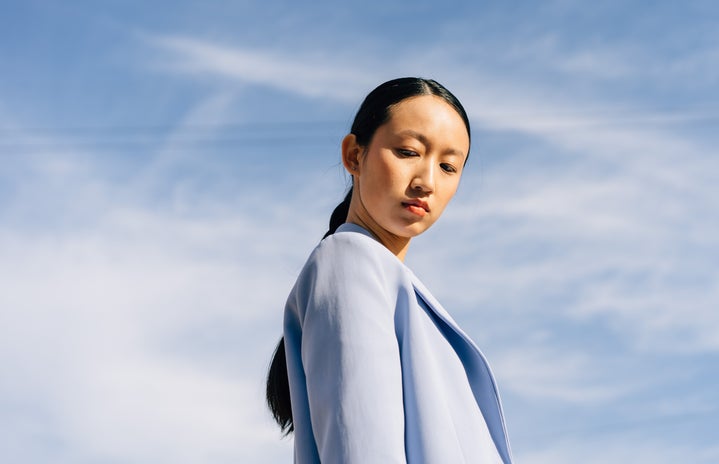The Her Campus National Editors write about products we love and think you’ll love too. Her Campus has affiliate partnerships, so we get a share of the revenue from your purchase. All products are in stock and all prices are accurate as of publication.
Imagine a world where you can shop and know without a doubt that your purchases are not harming workers, the environment or animals. Having this knowledge has not come so easy, especially as brands tend to not be transparent in their reports on treatment of workers and of the environment. Some do not even have reports or make them accessible to consumers.
The movement for ethical and sustainable fashion has been on the rise. But what exactly do those concepts mean? Avoiding the exhaustion of natural resources is the definition of sustainability and it also highlights longevity; systems in the environmental, social, and economic sphere must have a plan in which these products can be sustained for a long time with good quality. Ethical fashion emphasizes issues such as living wages, healthy working conditions and animal welfare. With more consumers becoming aware of the negative impacts of the fast fashion industry and holding them accountable, now fashion brands feel more pressure than ever to reflect and take action on their policies that harm the environment and do not enable a safe working space.
Now, full transparency over here. I have not 100% stopped buying from fast fashion. Yet, I have been taking steps to buy less fast fashion and when I do buy their pieces, I make sure it is a piece I will be wearing for a long time and consistently. One of the struggles that people face in shopping for sustainable brands, is that many brands might not be not inclusive or accessible to everyone. Sustainable products tend to cost more. There have been moments where I decided I would invest in sustainable wardrobe pieces. But other times, on this college budget and in this economy, certain clothing items I needed were purchased through fast fashion because it was more accessible economically.
I took part in the overconsumption of fast fashion for many years. At the time, I did not deeply reflect on its impacts. Now, I believe being more mindful of your purchases extends beyond shopping from more sustainable brands. If I threw away the clothes I had bought from fast fashion, rather than making use of what I already have, that would defeat the purpose of sustainability. Purchasing an item with purpose, and focusing on quality over quantity can prevent overconsumption of clothes whether they be from fast fashion or sustainable companies. Without further ado, the following are some of my favorite sustainable and ethical brands:
VEJA
I would say sustainability’s motto is “quality over quantity” and that is my motto as well. VEJA is my favorite sneaker brand, and they are great quality. They are based in Paris and create sneakers with a wide variety of colors. VEJA focuses on social initiatives, economic justice, and sustainability. According to the “Good on You” website, “VEJA’s environment rating is ‘good’. It uses a medium proportion of eco-friendly materials including organic cotton and it uses recycled packaging. Its tanneries are gold certified by the Leather Working Group. Its use of eco-friendly materials reduces its climate impact and limits the amount of chemicals, water and wastewater used in production. Its labor rating is ‘great’. It has a Code of Conduct that covers all of the ILO Four Fundamental Freedoms principles. It monitors health and safety issues by visiting all of its final stages of production suppliers.”
Girlfriend Collective
Girlfriend Collective is an American activewear brand that uses recycled materials to create its timeless pieces. On each of their product pages, you can see models of different sizes and skin tones wearing that same workout outfit, giving more consumers an idea of what that outfit might look like on them (although this is never too specific, we all have very distinct features). This brand is at the top of the list for me when it comes to workout fits.
Djerf Avenue
Djerf Avenue is a clothing brand ethically produced and manufactured in Portugal, Italy and Sweden. The factories in these three countries follow European laws and policies on labor practices. Djerf Avenue only uses natural, organic, regenerated, or recycled fibers in their products. According to influencer and designer/founder of the brand, Matilda Djerf, “You will never find retouched models on our website or social media. Our photos come straight from the camera roll, we don’t believe in editing bodies, pimples, or clothing. This is us. Just the way we are. And we are proud.” The former statement is yet another reason to embrace this brand!
Jade Swim
Jade Swim is a black-owned American swimwear brand with minimalist pieces that also have a soothing effect. Versatility is a trait evident in every piece and that is why it has become a more known and loved brand in recent years. Jade Swim utilizes a medium proportion of eco-friendly materials. The products are manufactured locally to lessen the carbon footprint.
Mate the Label
MATE is produced in Los Angeles, California, with non-toxic, natural, and organic components while meeting the demands of high-quality and comfortable styles. They have a yearly impact report, in which they are transparent about their carbon footprint and factory code of conduct, you can check it out here.


